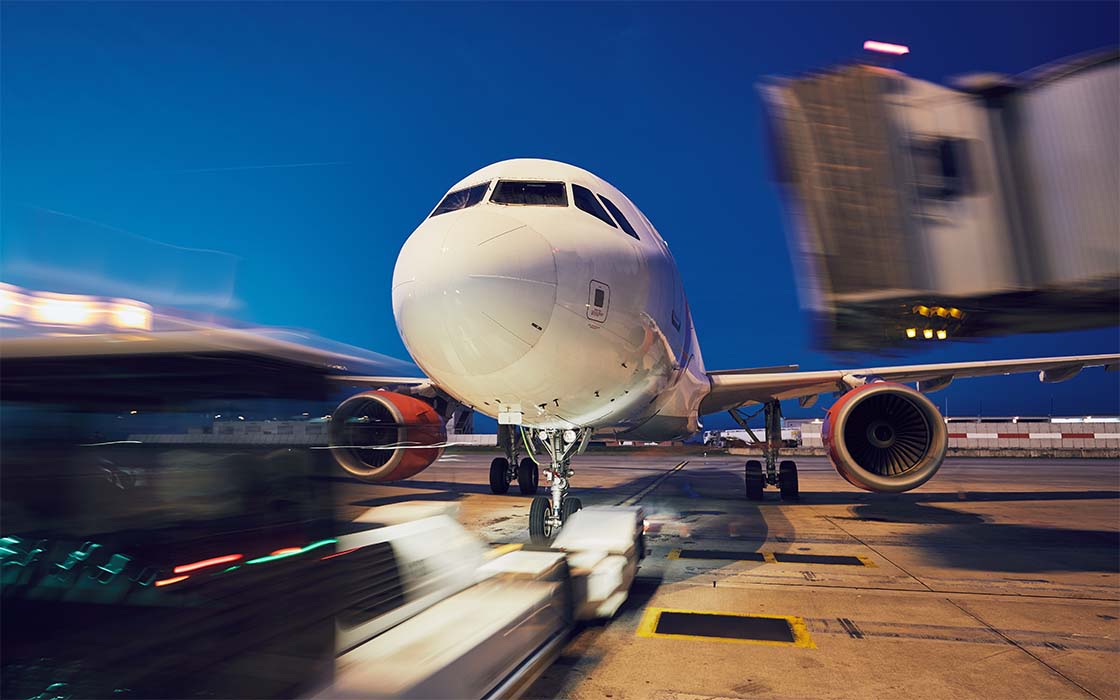
SET team wins national airspace system competition
With their entry focused on privacy-preserving machine learning, Team FLHuskies2 is one of five finalists who will work directly with NASA scientists to incorporate federated learning into the National Airspace System.
This Section's arrow_downward Theme Info Is:
- Background Image: ""
- Theme: "light-theme"
- Header Style: "purple_dominant"
- Card Height Setting: "consistent_row_height"
- Section Parallax: "0"
- Section Parallax Height: ""
A team of UW Tacoma computer science students and faculty is among five winners, out of hundreds of competitors, in a challenge sponsored by NASA to optimize the nation’s commercial aircraft flight network.
The team, which calls itself FLHuskies2, comprises undergraduate computer science students Daniil Filienko, Yudong Lin, Trevor Tomlin and Kyler Robison; Ph.D. student Sikha Pentyala; and Martine De Cock and Anderson Nascimento, both professors in the School of Engineering & Technology (SET).

Through the competition, called “Pushback to the Future,” NASA invited university teams throughout the U.S. to develop a more accurate way of predicting when an individual commercial flight will push back from the airport gate to commence its journey. That event is called ‘pushback.’ As NASA put it: “the task will be to train a machine learning model to automatically predict pushback time from public air traffic and weather data. Better algorithms for predicting pushback time can help air traffic management systems more efficiently use the limited capacity of airports, runways and the National Airspace System.”
The other four competition-winning teams were from NYU, Caltech, Weill Cornell Medicine and Syracuse University. By placing fourth, team FLHuskies2 won $7,500, which will be split evenly among the undergraduate students on the team.
“It was amazing to see how quickly our students got up to speed,” said De Cock. “They quickly leaped ahead of many other teams from prestigious institutions. We have very talented students in our classrooms.” The students received the 2022-23 SET Outstanding Undergraduate Research Award for their work.
In Phase 2 of the project, the five winning teams will work directly with NASA scientists to find ways to incorporate “federated learning” into the National Airspace System. NASA notes that “there are many public and private organizations that collect flight and airspace related data, but privacy and intellectual property concerns prevent much of this data from being aggregated, and thus hamper the ability to make the best predictions and decisions.”
Federated learning techniques will allow air system managers to use the private and protected data to improve the nation's airspace management without violating privacy or IP restrictions.
Just as federated learning will likely be a key technology in improvements to U.S. commercial aviation, the technology is playing a central role in many other domains as industry and government rush to leverage the power of artificial intelligence. De Cock and Nascimento have both spent years developing technical breakthroughs in what is known as privacy-preserving machine learning (PPML). Teams they have advised have won numerous competitions in the areas of genomic analysis, financial technology, and now, airspace management.
Recent news
Main Content
Gathering Strength
News Tags on this arrow_upward Story:
- None
Main Content
UW Tacoma Enrollment up 4% for Autumn 2024
News Tags on this arrow_upward Story:
- None
Main Content
Celebrating First Gen
News Tags on this arrow_upward Story:
- None



